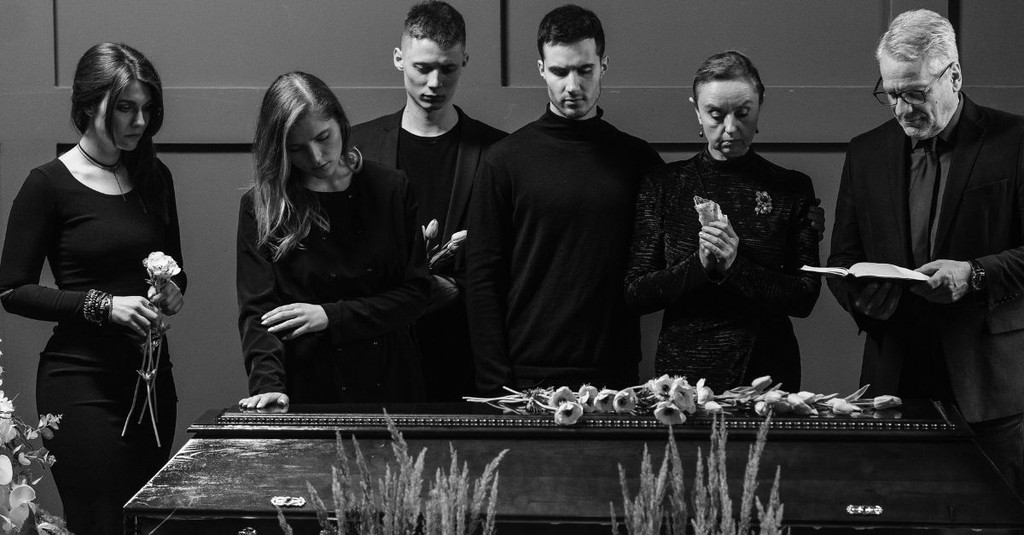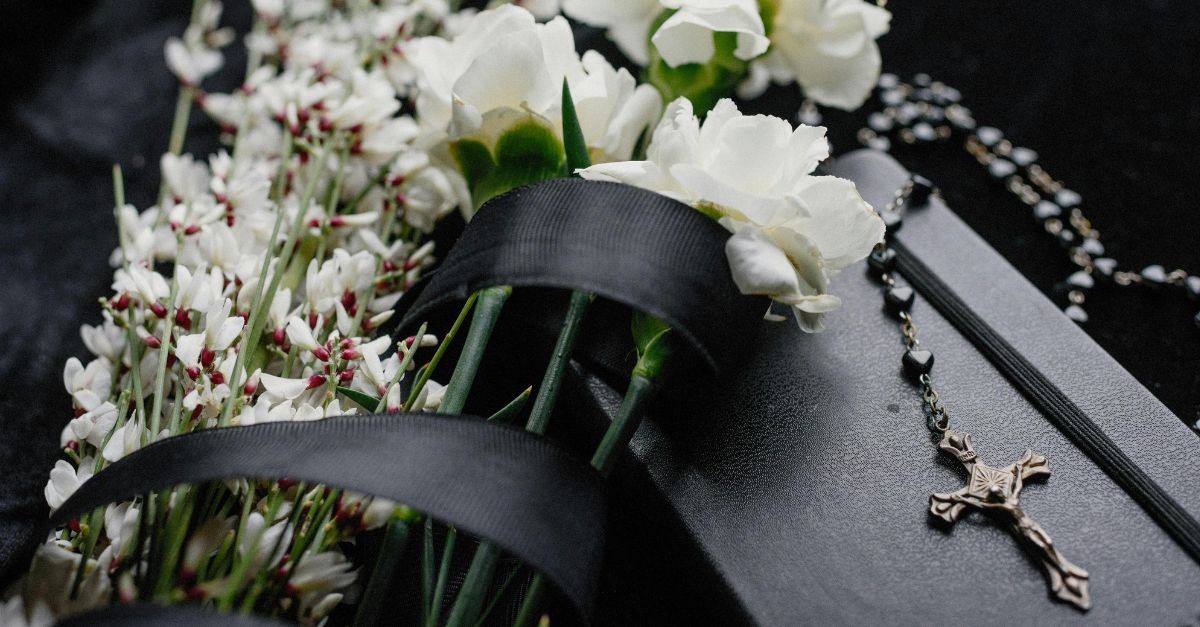
Death.
We don’t like to talk about such a thing. In our culture, we do almost anything we can to take the sting out of death. We use euphemisms. We try to joke about it. We try to stare it in the face and pretend like it isn’t a big bad bully. We even attempt to choke away the darkness with shiny optimism. And yet death still takes us away.
In Christian circles these days, we tend to have celebration of life ceremonies instead of funerals. We talk about playing worship music at our funerals. We want others to celebrate our passing into eternity. “Don’t weep for me. I’m with Jesus,” we will tell our loved ones. I understand these sentiments. They are not entirely wrong. But one has to wonder if it’s only a Christianized way of running from death instead of facing up to its cold reality.
Facing death does not mean that we do not have peace with death. Not that we sign a peace treaty with our great enemy. But rather that we are internally at peace, our heart has shalom, even while the consequence of sin washes over our mortal bodies.
Whether you are struggling with your own death or the death of a loved one, my hope here is that these three truths will help you come to peace with the reality of death. There is no need to run. But there is a reason to have hope.
Photo Credit: ©Pexels/Pavel Danilyuk
1. Allow Yourself to Grieve
I like to read 1 Thessalonians 4:13-17 at graveside services, with an emphasis on 1 Thessalonians 4:13:
“But we do not want you to be uninformed, brothers, about those who are asleep, that you may not grieve as others do who have no hope.”
One way we can read this is to say that Paul tells us Christians should not grieve. If that is Paul’s meaning, it would fit with the culture of the time. Much like in our day, letters of consolation often included exhortations to minimize grief. One encouraged his mother to “leave off lamenting, cease to mourn and cut yourself; Hades turns pity aside.”[1] His point is that grief does nothing to change reality. It is a hopeless exhortation. Do not grieve. It does no good.
Is that what Paul is saying? I would argue that Paul is encouraging grief—but a grief that is founded upon hope. Paul’s Hebrew upbringing would have had him inundated with the Psalms. And the Psalms give us a language of lament. One cannot be at home in the Old Testament and be foreign to the concept of grief. Yet, it is a grief with hope.
There are things we ought to grieve. Death is one of them. The Bible acknowledges the importance of mourning and lament. Scripture gives space for believers to express sorrow. Ecclesiastes 3:4 reminds us that there is a season for everything, including a time to mourn. Allowing oneself to grieve is not a sign of weak faith but a step toward healing and peace.
Jesus experienced grief in the Garden of Gethsemane. His soul was deeply troubled, and it was here that He expressed His sorrow and anguish. Psalm 22 is a psalm of lament, and He cried this out upon the Cross. He was acquainted with much sorrow and grief. Jesus legitimizes our grief and sorrow. Lamenting death is part of the human experience—and one with which our Lord was acquainted. He wept at the death of Lazarus, even though He would soon heal him.
Allowing ourselves the opportunity to grieve is a way to honor our bodies—even though they are failing—and our loved ones as well. I understand the desire to have a party at a funeral. Yes, it is far better for our relatives if they are at home with the Lord. There is nothing sweeter. This is why we have hope.
But to only party is to minimize the reality of death. We ought to grieve because people matter. It is a loss. We like to quote Paul’s statement that it is better to depart and be with Christ, but we seem to forget that he “chose” to stay with them and to help them bear even more fruit. In other words, Paul’s life mattered. The people we leave behind matter. Let them grieve.
[1] Lattimore, Themes in Greek and Latin Epitaphs, 218.[1]

2. Trust in God's Care
As a pastor, I have the unique opportunity to have been around many people as they are dying. I have walked with people through their cancer diagnosis and into those final days of life. There are two main concerns that people have in common. For some, it is a vague fear of the unknown and a loss of control. That is usually in the beginning stages. They mourn no longer being able to do things they once did. The reality of no longer being in control hits many like a ton of bricks.
But I have also known many dear saints who have already learned the lesson of God’s sovereign care. They acknowledge that they were never in control in the first place—control was only an illusion. And in these last stages of life, they’ve given up on that illusion. But even here, one fear still seems to linger: what will happen to my loved ones?
This is a particular fear of those who are still younger. How can Mama come to peace with not being there for her dear children? How can a younger husband not worry about how his wife will be provided for and cared for when he departs? This helplessness has the same remedy—trusting in God’s sovereign care. But it seems more difficult to trust God’s care for others than to trust in His care for us.
Scripture assures us that God is a loving and caring Father who will not abandon us or our loved ones. Jesus demonstrated this trust during His crucifixion when He entrusted His mother to the care of His disciple John (John 19:26-27). Despite His own suffering, Jesus showed concern for His mother's well-being, trusting that she would be cared for. This act illustrates the importance of trusting God with our loved ones, knowing that He will provide for them in our absence.
God has always been the one caring for us and caring for others. We can trust Him with our death and the death of loved ones.
As a brief side note, sometimes our loved ones will “hang on” until we have accepted their death. I do not understand this. I fully believe that God is sovereign over the very moment when we die. But I have also seen people hang on and keep fighting while a spouse or child cannot accept their death. Then, at that moment, when the grieving person whispers in the ear, “It’s okay to go, Daddy,” that person will soon depart. Let your loved one know that you’ll be okay and that you are trusting in God’s care.
Photo Credit: ©Pexels/Ksenia Chernaya
3. Remember God's Promise of Eternity
Another passage I am fond of using at funerals is Romans 8. I like to encourage people to press into the grief they are feeling and then take them to Romans 8:18. If we really come to grips with our present sufferings, then we must indeed marvel that they will be “not worthy to be compared with the glory that is about to be revealed." How precious must Jesus be that we’d look at death as “not worthy to be compared”? How can we say these are “light and momentary afflictions” when they are so painful? The only answer is that Jesus is magnificent.
The whole story of death is that because of the work of Christ, death no longer has the last word. Death has indeed lost its sting. That means death is not a period. It’s only a comma. Because of this truth, I always pray with people that God would heal them. Sometimes, He answers that this side of glory. At other times, we know that He answers it ultimately.
None of this is to minimize the cold reality of death; instead, it is to see how the warm embrace of Christ is far sweeter. Jesus' resurrection means that we, too, will be resurrected. It was this joy that was set before Him that allowed Him to endure the ravages of the Cross. Death is not the end. This gives us peace, whether we are the one dying or the one holding the hand of a loved one.
If we are united to Christ, we must still face the reality of death. But we face it as those who have hope. Because of His accomplishment, even these dark moments are infused with hope and beauty. We can have peace with death.
Originally published Wednesday, 29 May 2024.
